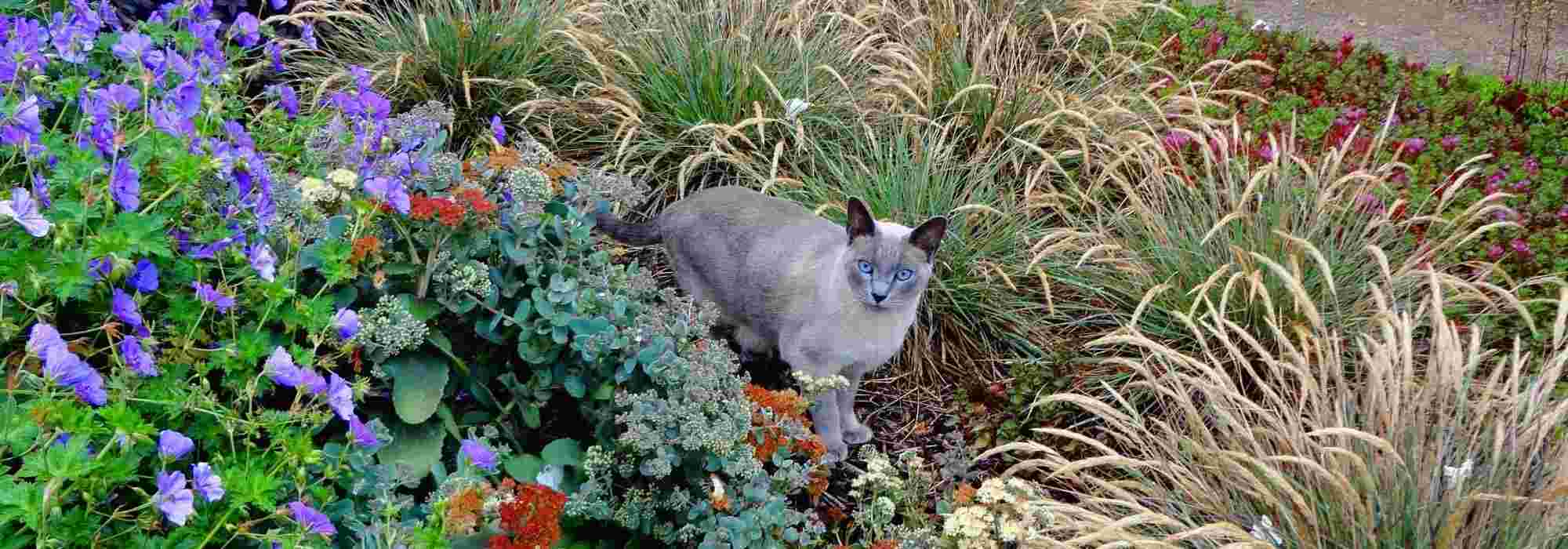
How to keep cats out of the garden? Repellents, plants and other tips
Our tips for gently deterring them
Contents
You adore cats, they are so cute, a little less so however when they turn your garden into a real playground, happily nibble some of your aromatic plants, relieve themselves in your vegetable patch, use your flower beds as a litter layer, nap among your plants or mark their territory on your terrace! For small nuisances, good remedies exist: natural repellent solutions can keep these adorable moggies gently away from your plants or windows.
Cats are highly receptive to scents, and some aromas that are very pleasant to us are for them so unbearable that they will keep as far away as possible.
Discover cat-repellent plants and our tips to keep them effectively away from garden and vegetable patch!
Aromatic herbs to deter cats
Lemon verbena
Among plants that cats prefer to avoid, Lemon verbena tops the list! This aromatic plant, whose foliage gives off a very pleasant lemon scent to us, strongly upsets cats’ sense of smell. Not very hardy, Lemon verbena is grown in open ground in regions with mild winters or in a pot for cooler areas, to be brought indoors for winter. Leaves are enjoyed in infusions, iced herbal teas or to flavour desserts. If cats venture too close to vegetable patch, plant clumps of verbena along its edge.
Lemon balm
Another aromatic plant with a delightfully lemon scent that cats hate. Leaves of lemon balm (Melissa officinalis) exhale a lemony-mint, lime and citronella aroma when crushed, ideal for flavouring infusions or summer salads but also for keeping cats away! Grow it in open ground as compact bushes in fresh, fertile, light soil, in full sun or partial shade, or in a pot on a terrace.
Rosemary
Rosemary is a handsome shrub with very aromatic evergreen foliage essential in cooking. Did you know that with its powerful, invigorating, camphoraceous, green scent it also forms part of very effective cat repellents? Hardy and undemanding, it is an excellent plant for dry, poor soil. Plant it in a rockery, as an edging, in a small hedge, in garden or vegetable patch, or in a pot beside plantings or areas you wish to protect.
Lemon thyme
Thymus citriodorus is a variety of thyme whose evergreen foliage gives off a lovely lemon aroma that repels cats. A sun-loving plant, it is grown as dry edging, in a rockery at the vegetable patch with other culinary plants or in a pot on a terrace or windowsill. Plant in poor, free-draining soil; it is easy to grow and useful for driving away unwanted four-legged visitors!
Generally, all aromatic herbs emit often intense scents that act as an olfactory barrier to keep cats away; you can also plant lavender to deter opportunistic visitors.
Beautiful repellent plants and flowers
Common rue
Fetid rue (Ruta graveolens), also called “Rue officinale”, is a perennial aromatic and medicinal plant with ornamental value, thanks to its blue-green foliage and pretty sulphur-yellow summer flowering. Its very aromatic leaves give off a distinctive odour reputed to repel cats. Plant at edge of vegetable garden or within a border where it will deter them from digging in mulches or at site of new sowings. It has medicinal properties but can be toxic and should be used only by those experienced with it. Plant in sun, in ordinary, dry and even stony soil.
Italian immortelle
Italian immortelle or Helichrysum italicum is a bushy Mediterranean perennial essential in dry gardens. It is distinguished by pretty golden-yellow flowering and attractive grey evergreen foliage with an intense curry scent, perceptible several metres away: an odour much disliked by cats. Cats also find the texture of its foliage irritating when they rub against it, so they tend to avoid it. Plant Helichrysum italicum in sun, sheltered from wind, in well-drained soil. It forms pretty silvery clumps year-round in rockeries and in the most barren parts of the garden. Curry plant also fits naturally in a vegetable plot, in a small bed or an herb border.
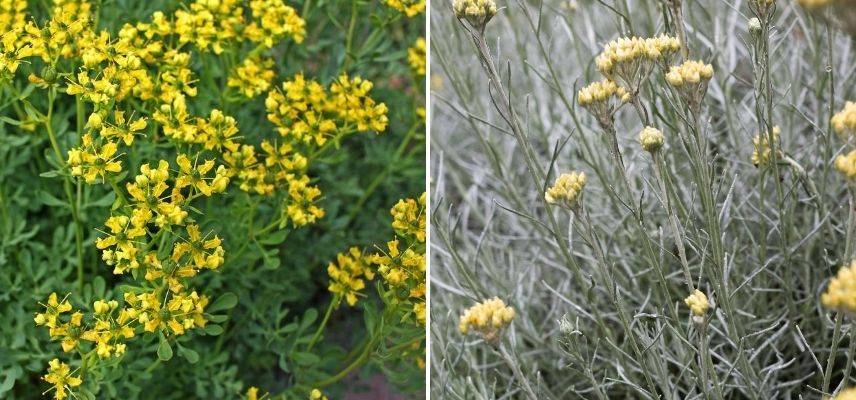
Rue and Curry plant
Coleus canina
Coleus canina, sometimes called “anti-cat plant”, emits a very strong, distinctive odour reminiscent of a skunk and is reputed to deter cats and dogs. It is related to mint and has attractive summer flowering in spikes of blue-lavender flowers and pale green leaves. Place this repellent plant near paths, on the edge of borders or close to vegetable garden. It thrives in sun or partial shade, in rich, well-drained soil and is planted according to region: either outdoors where it is grown as an annual, or in a pot to be overwintered indoors.
Dittany
Dittany has dense, strongly aromatic foliage that emits a pronounced vanilla-lemon scent, delightful to us but detestable to cats! With real ornamental qualities, it produces in summer flowering stems of small pale pink, white or purple flowers. The whole plant is fragrant. It requires heat, sun and well-drained, dry, rocky or stony soil to perform at its best. Suitable for rockeries or to protect a very sunny, never-watered spot from cats. It is slow to establish; take this into account if you want an effective short-term repellent and choose another plant if necessary.
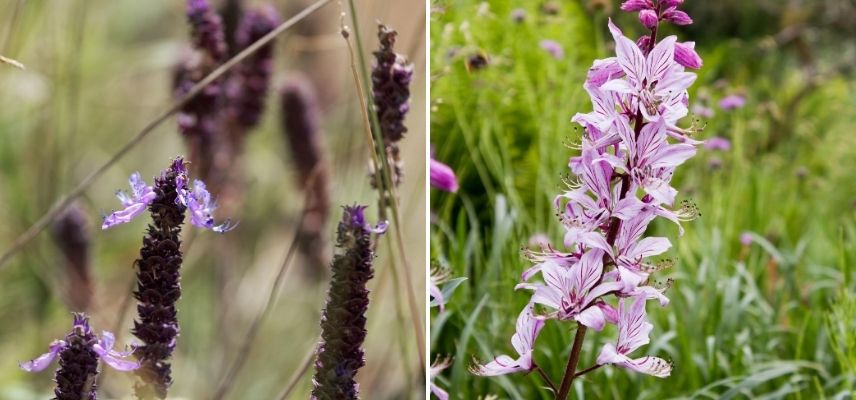
Coleus canina and Dittany
Discover other Vegetable gardens
View all →Available in 1 sizes
Available in 1 sizes
Available in 1 sizes
Available in 1 sizes
Available in 1 sizes
Available in 1 sizes
Available in 1 sizes
Available in 1 sizes
Available in 1 sizes
Available in 1 sizes
Aggressive groundcovers
After scent barriers, time for physical barriers!
Thorny shrubs
Some plants, thanks to their sharp thorns, discourage cats from entering your garden or approaching plants you want to protect. A cat that gets pricked is unlikely to return! To deter our little companions from trampling these delicate areas, plant strategically an impenetrable hedge of barberry (Berberis), dwarf Berberis (‘Nana’) or ground-cover roses, for example around the vegetable garden or along the edge of a flower bed.
Dissuading groundcover plants
Cats prefer bare soil for toileting. The solution: create unfavourable conditions to keep them away and hinder their movements. Grow dense, bushy groundcover plants that are as discouraging as they are attractive, such as dwarf bamboos, chameleon plant or Chinese pepper (Houttuynia cordata), which gives off a peppery scent unpleasant to cats, hardy geraniums, a low St John’s wort or creeping rosemary (‘Prostratus’).
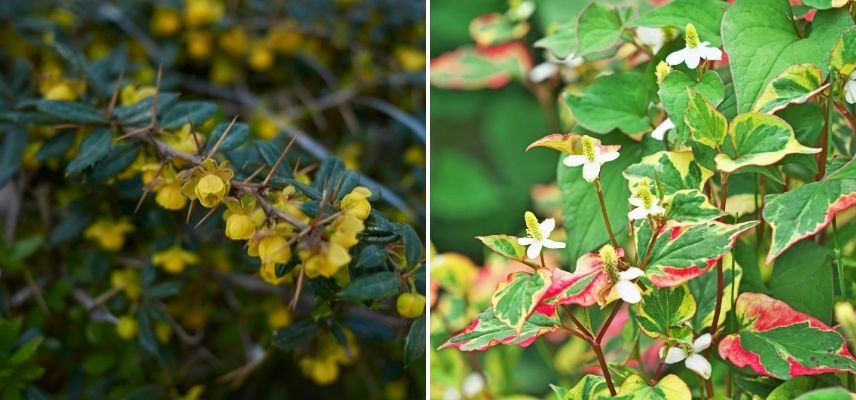
Berberis and Houttuynia
To deter cats from damaging your plants or turning the soil, cover the soil with natural materials well suited to protecting flower beds and vegetable gardens, such as shells, pebbles, clay balls, pine cones or slate ; cats will not venture into this hostile environment!
Other tips and natural repellents
If despite everything felines attack your garden, there are other grandmother’s remedies to drive them away: freshly ground pepper, mustard diluted in water, coffee grounds, or the bark of citrus trees placed where cats cause damage are very effective alternatives to keep them away from your plantings. Renew these natural measures regularly. White vinegar also deters cats: spray undiluted white vinegar where you do not want cats to hang around or surround the base of affected plants with newspaper soaked in white vinegar. Repeat regularly.
Finally, to distract them from your plants, plant cat grass, cats love it!
- Subscribe!
- Contents
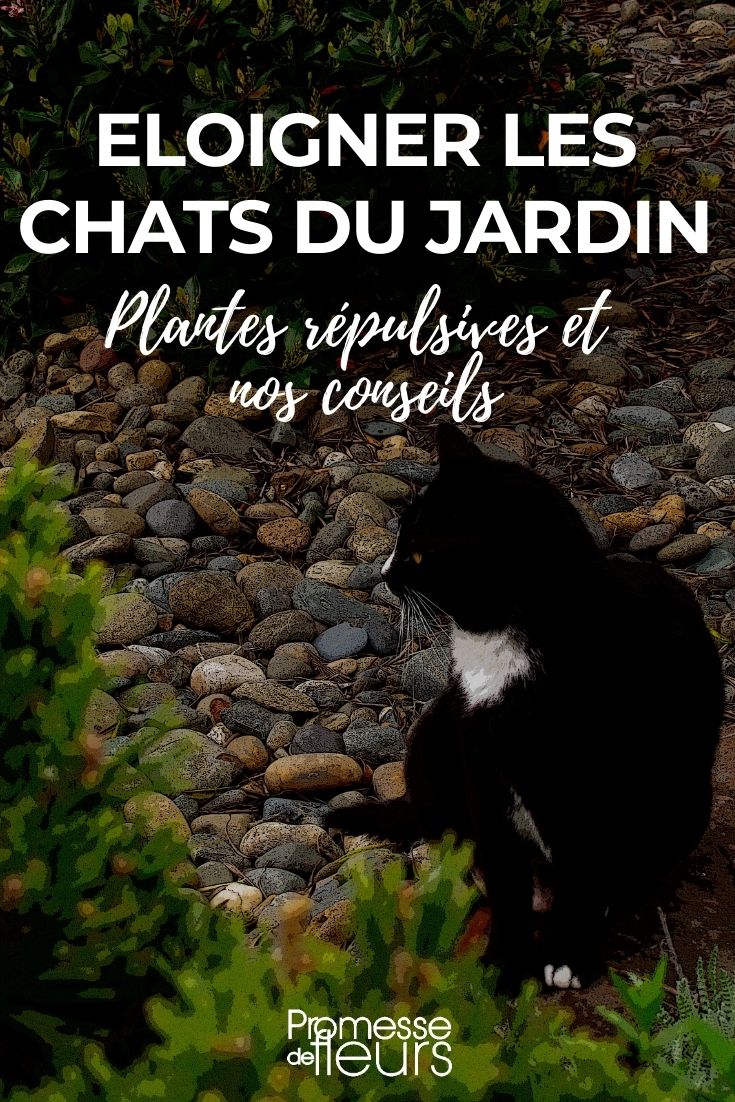































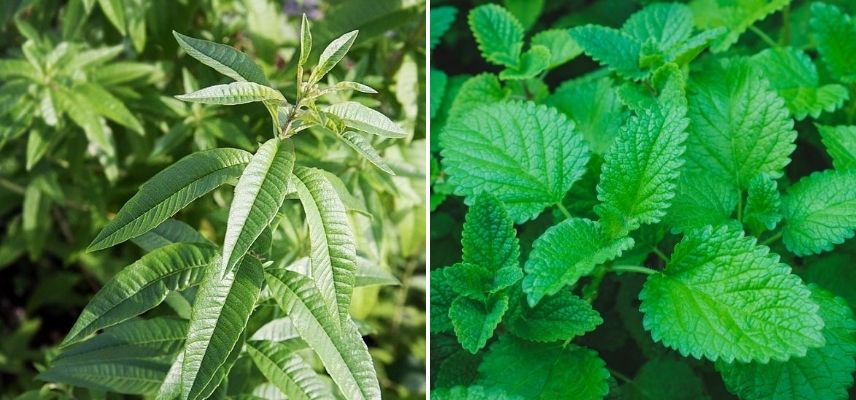
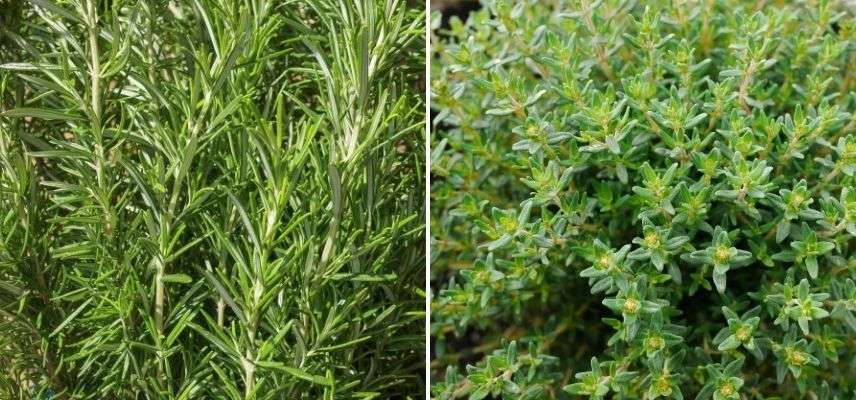


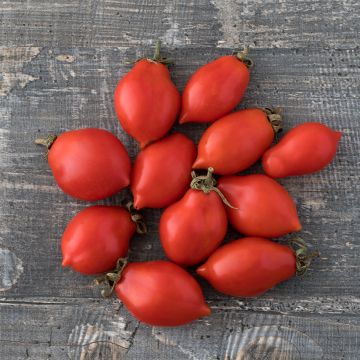

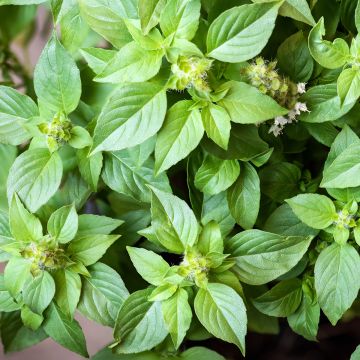

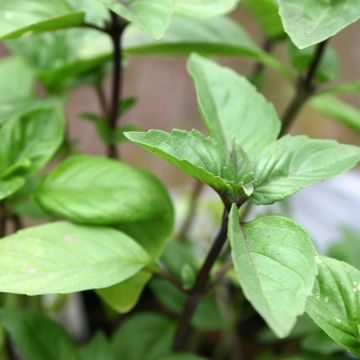
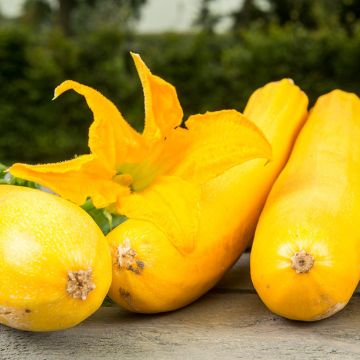


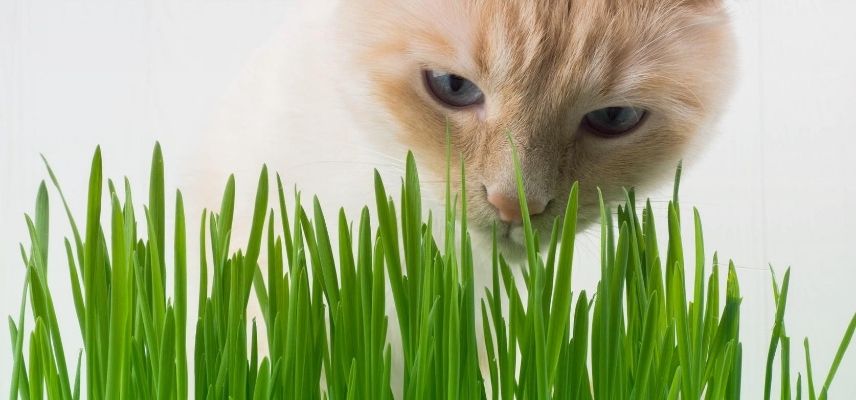
Comments